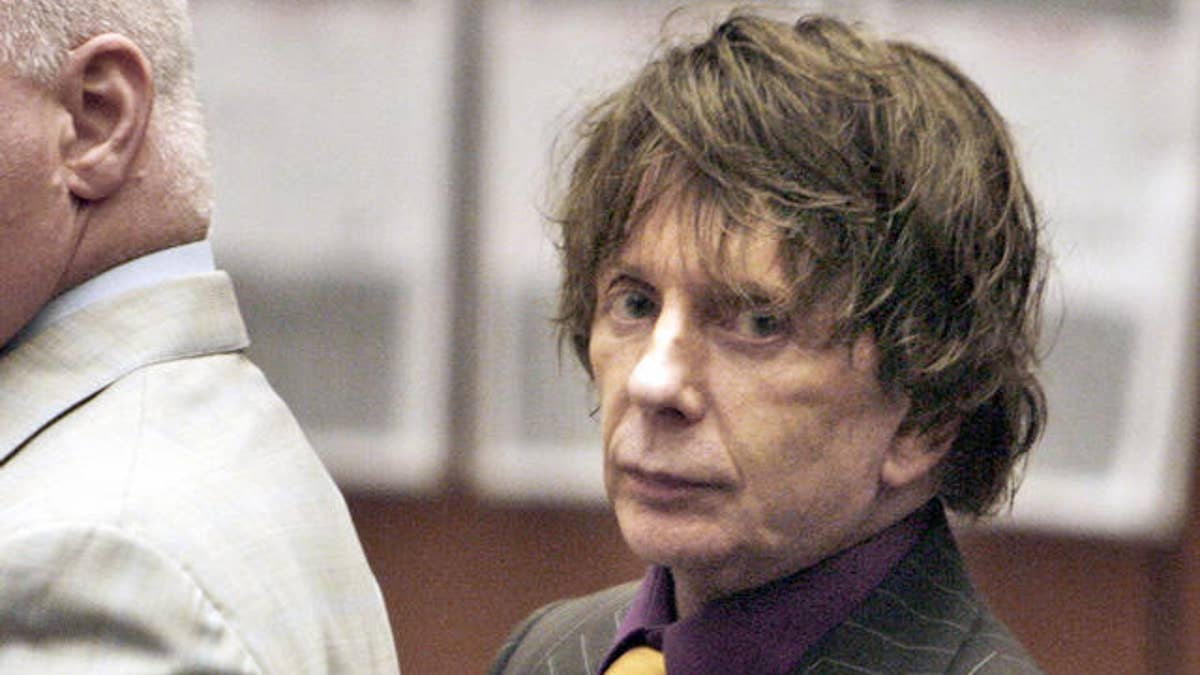
Aug 2007: Phil Spector during his murder trial in Los Angeles, CA. (AP)
LOS ANGELES – Lawyers for music producer Phil Spector have asked an appeals court to take a second look at his arguments for a new trial, contending the court ignored a defense argument that the trial judge had violated his neutrality in the case.
In a petition to the California 2nd District Court of Appeal, attorneys said the court's rejection of Spector's murder conviction appeal has left the legal community incredulous.
They suggested the court failed to consider that Superior Court Judge Larry Paul Fidler violated his neutrality by allowing the prosecution to show photographs of him among prosecution witnesses. They said this was coupled with a videotape of the judge explaining key forensic evidence.
Dennis Riordan, joined by fellow attorneys Charles Sevilla and Donald M. Horgan, alleged that jurors watched the tape during prosecution closing arguments, a move that turned the judge into a witness.
"No aspect of the trial was more startling," Riordan said, noting that in discussions within the legal community, "the assertion that prosecutors included multiple images of the presiding judge among the photos of their witnesses is met without exception by shocked incredulity."
Spector, a legendary rock music producer, was convicted two years ago of fatally shooting actress Lana Clarkson at his Alhambra mansion in 2003. He is serving 19 years to life in prison on a second-degree murder conviction.
His first trial ended in a hung jury; the second ended in a conviction.
The videotape of Fidler was from a hearing in which the trial judge explained a forensic witness' testimony about blood back spatter on Clarkson's wrist. The appeal quoted a prosecutor's statement to jurors: "See with your own eyes where (the expert) and the judge indicated the back spatter was on Lana's wrist."
That and other statements made Fidler a witness for the prosecution, Riordan said, and the defense had no opportunity to cross-examine him.
Riordan said a judge is forbidden to testify for one side or the other in a trial over which he is presiding. When defense attorneys asked the judge to tell jurors his comments were not part of the evidence, Fidler refused, they said.
In rejecting the defense's original appeal, the California appellate court validated Fidler's actions. The May 2 opinion found that on the issue of the videotape, "a trial court's power, indeed its responsibility, to clarify testimony is well-settled in California."
The new defense petition called out a footnote in that opinion that said the judicial panel didn't address the photos of the Fidler because it was not raised as an independent issue in the opening brief. Spector's lawyers said in the new appeal that "the court cannot avoid confronting the significance of the photographic display by invoking a procedural bar."
Riordan said the defense would be taking other issues in the appeal to the California Supreme Court, but that the appellate court must first address the photo display, which was "the factual cornerstone of the defendant's federal constitutional claims."

